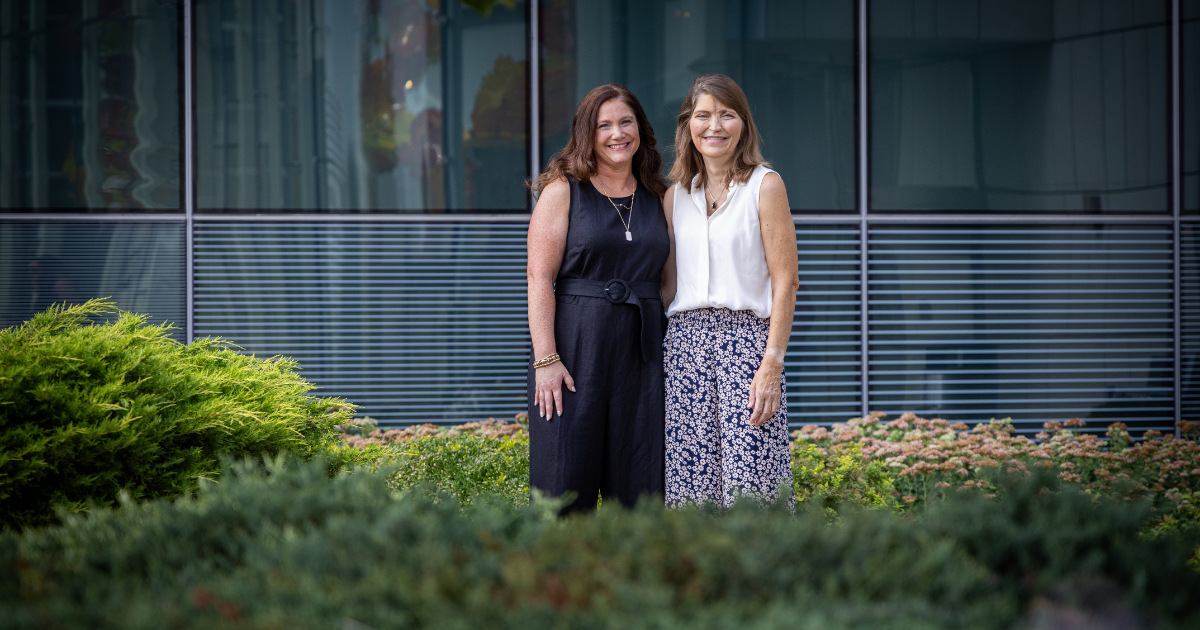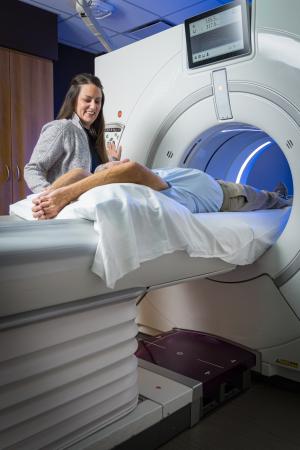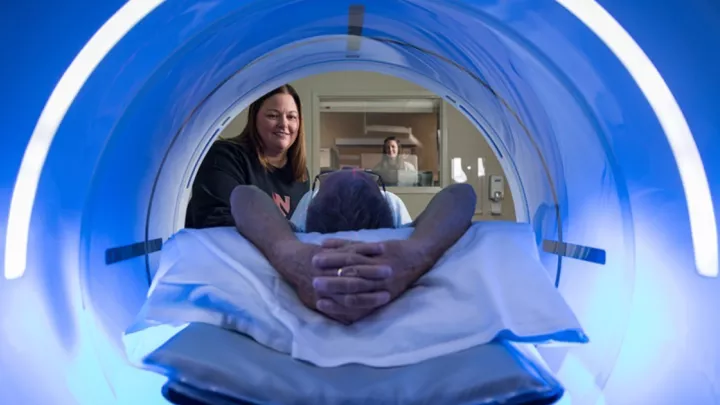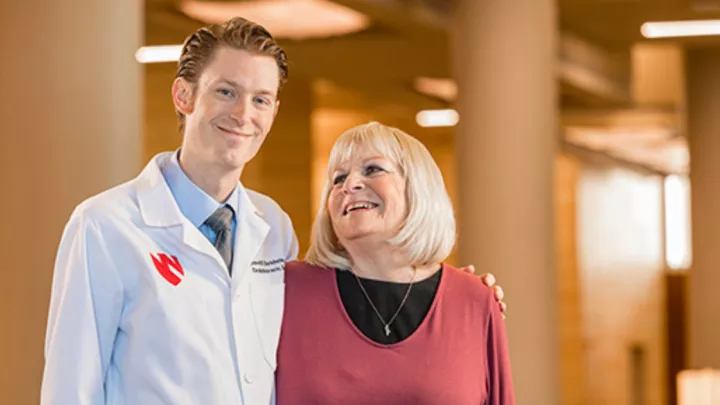Lung cancer screening saves lives by detecting nodules in earliest stages

Mindi Coleman, BSW, RN, lung cancer screening case manager, with Michele Jackley, patient
Michelle Jackley still remembers her first cigarette that started the beginning of a 20-year addiction. She was in middle school and just 14 years old. She and her friend walked to the neighborhood convenience store and told the clerk they were buying cigarettes for their parents.
The two huddled behind the store and took their first puffs. Neither of them really cared for it, but they kept puffing. “Back then, smoking was like a rite of passage to becoming an adult,” says Jackley, who is now 55. “Everyone smoked – my parents, their friends, aunts, uncles and grandparents.”
Jackley remembers getting very ill that evening. She became nauseated and started vomiting profusely.
But that didn’t deter her from smoking again. She and her friend bought another pack a few days later. By high school, she was smoking two packs a day. It had become an addiction.
She tried stopping several times, but the nicotine craving was too strong. That was until she developed black tongue, a condition caused when food, drinks or tobacco get trapped on the tiny bumps on the tongue and stain them, making the tongue look dark and hairy. Her doctor told her it was caused by smoking cigarettes and was a sign that she was smoking too much.
“It scared me to death,” recalls Jackley, who was a single mother of two young children. “I couldn’t stop thinking about what would happen to my children if I was not around.”
This dire warning was enough to scare Jackley into quitting.
More than 20 years passed before Jackley received a phone call from Mindi Coleman, BSW, RN, lung cancer screening case manager. Coleman asked Jackley if she’d be interested in taking part in a lung cancer screening.
Coleman is part of the Nebraska Medicine Lung Cancer Screening Program, which screens current and former smokers for lung cancer. It involves a group of providers from oncology, pulmonology, and thoracic surgery who work collaboratively to screen, diagnose and develop the best treatment plan for individuals who are found to have abnormalities on their scan, as not all abnormalities are related to cancer.

“The screening uses a low-dose CT scan that can detect lung cancer nodules in stage 1A when the cure rate can be as high as 90% or more,” says Erik Lewis, MD, Nebraska Medicine thoracic surgeon.
Most people do not develop symptoms until the disease is more advanced and has spread to other parts of the body. Symptoms may include chest pain, persistent cough, coughing up blood, weight loss, shortness of breath and hoarseness.
“Lung cancer kills more people annually than breast, colon and prostate cancer combined,” says Dr. Lewis. “Our goal is to shift the diagnosis of this disease to early stages when the cancer is small and can be cured.”
People ages 50 to 80 who have a 20 packyear history qualify for the insurance covered screening. A 20 pack-year history is equivalent to a half pack a day for 40 years, one pack a day for 20 years or two packs a day for 10 years.
“We are contacting our former patients who meet these qualifications,” says Coleman. “Once you qualify for the screening, you can get screened every year.”
The phone call to Jackley in September 2023 may have saved her life. The results of the scan showed a small but suspicious spot on her lungs. After a review of the results by members of the lung cancer screening team, additional testing was recommended to confirm their suspicions.

Early this year, Dr. Lewis performed robotic navigational bronchoscopy to mark the small spot, immediately followed by robotic lung resection. This procedure required four small incisions about a centimeter in length on the side of the chest, through which a tiny camera and small instruments were inserted to remove the cancer. Jackley was able to go home within three days.
“It was a little bit of a miracle,” says Jackley. “If it hadn’t been for that phone call, the cancer probably would not have been found until it was in a more advanced stage. Dr. Lewis and all of the staff with Nebraska Medicine were so wonderful.”
“We consider Michele cured,” says Dr. Lewis. “She required no other forms of therapy. This is the type of outcome we hope for all of our patients.”
To determine if you qualify for lung cancer screening, visit NebraskaMed.com/LungScreen or call 402.559.5600.







